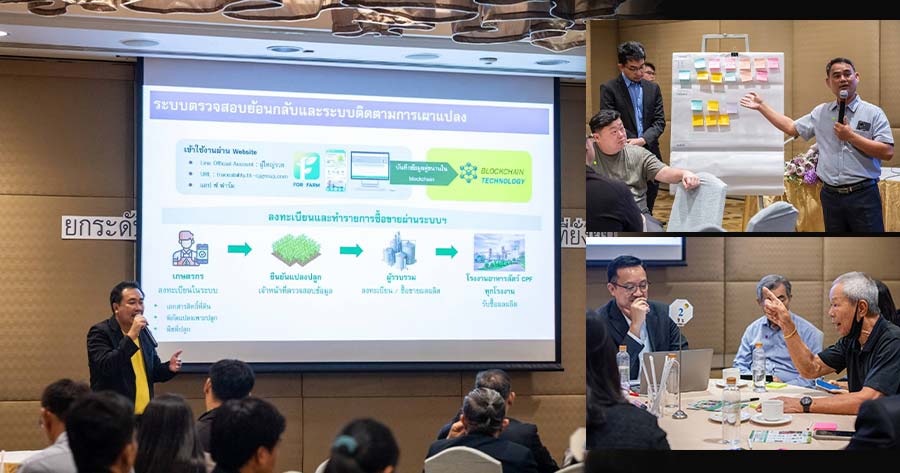Bangkok Produce Merchandising Public Company Limited and ERM-Siam Company Limited, a global sustainability consulting firm, hosted a groundbreaking workshop titled ‘Transforming Thailand’s Agricultural Supply Chain into Sustainable Food Production Systems.’ The event convened representatives from diverse sectors, including farmers, feed-related industry organizations, government agencies, educational institutions, independent auditors, and both Thai and international NGOs. Participants exchanged insights and recommendations to validate the accuracy and reliability of sustainable agricultural feed ingredient sourcing standards, aligning with the criteria set by ISEAL Alliance—an organization that establishes benchmarks for developing sustainability standards in compliance with global trade regulations.
Mr. Paisarn Kruawongvanich, Chief Executive Officer of Bangkok Produce Merchandising, announced that the company, as the major agricultural raw material supplier for Charoen Pokphand Foods Public Company Limited (CP Foods), is spearheading the development of rigorous sourcing standards for key feed ingredients including corn, soybean meal, palm oil, and cassava. This initiative mandates third-party verification to ensure transparency and accountability, while actively soliciting feedback and recommendations from all relevant stakeholder groups.
The comprehensive standards aim to address social and environmental impacts comprehensively, incorporating principles that strictly prohibit forest encroachment and crop burning, promote ethical labor practices aligned with human rights principles, and establish full traceability throughout the supply chain. This transformative approach is designed to support and advance the United Nations Sustainable Development Goals (UN SDGs)
“Advancing sustainability demands concerted efforts from all sectors to ensure that the development and implementation of agricultural ingredients sourcing standards genuinely benefit farmers, stakeholders, the environment, and societies both in Thailand and globally,” Paisarn emphasized.
Annop Yangwanichseth, a farmer representative and member of the Roundtable on Sustainable Palm Oil (RSPO) from Suratthani province, said that today’s discussions with various farmer groups, including cassava and corn farmers, focused on adapting to agricultural feed ingredient sourcing standards and the necessity of traceability systems. He supported the idea that standards should be verified by a third party annually.
Dr. Somkid Damnoi, Director of the New Economic Crop and Greenhouse Gas Management in the Agricultural Sector Bureau at the Department of Agriculture, lauded the private sector’s initiative to establish sustainable food and agriculture production standards. He noted that similar standards for palm oil and other agricultural products have already yielded significant benefits for farmers, society, and the environment. Dr Damnoi expressed confidence that this new standard, which explicitly prohibits forest encroachment and burning while addressing labor issues, will serve as an exemplary benchmark for the industry.
The Thai agricultural and food production industry proactively addresses and adapts to various global shifts, particularly emerging international trade regulations. These include the EU’s Carbon Border Adjustment Mechanism (EU-CBAM), EU Deforestation-free Products Regulation (EUDR), and EU Corporate Sustainability Due Diligence Directive (EU-CSRDDD). Such developments compel agricultural and food producers to swiftly align with evolving trade regulations and international sustainability standards, aiming to bolster the competitiveness of Thai farm products in the global marketplace.





